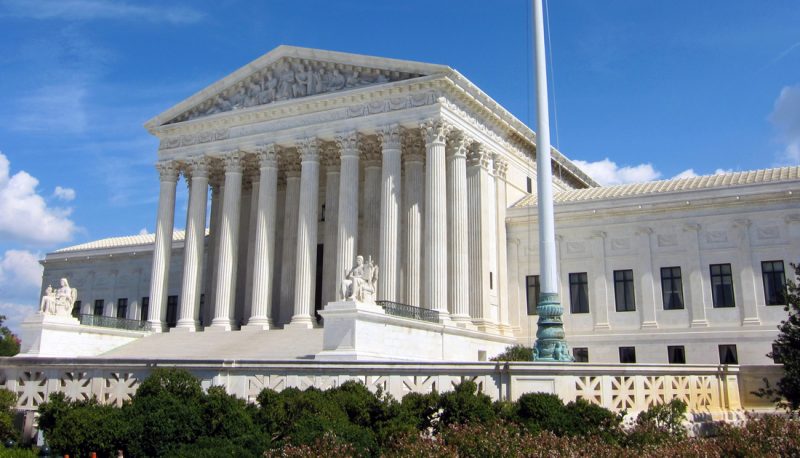The Supreme Court held oral arguments today in several cases concerning the validity of subpoenas issued by Congress and a grand jury to companies with financial records, including tax payments, of President Trump.
The first argument concerned efforts to block subpoenas by three different House committees to banks and an accounting firm for tax and financial records of President Trump and others, mostly before he became president. Immediately after that, the Court heard about a similar Trump effort to block a Manhattan grand jury subpoena for similar records.
As demonstrated in more than three hours of argument by telephone, the cases raise critical issues concerning congressional oversight and whether this president, as well as future presidents, are effectively above the law.
Throughout the arguments, all five right-wing justices expressed concern about “harassment” of the president, through the current or future subpoenas. Chief Justice John Roberts asked how to “measure harassment” that the subpoenas could cause. Justice Samuel Alito said the issue was “whether something should be done” to “prevent harassment of the president.”
On the other hand, moderate justices explained, as Justice Elena Kagan put it, that “the president isn’t above the law.” They expressed alarm at the arguments by the Trump Department of Justice (DOJ) and his personal counsel, particularly noted right-wing lawyer Jay Sekulow, that Trump was claiming a right that is “nowhere in the Constitution,” as Justice Sonia Sotomayor stated, to block any and all subpoenas to third parties that ask for records relating to his personal or financial conduct that may be relevant to future legislation or to a criminal investigation. As to congressional oversight, Justice Kagan noted, Trump is trying to put a ‘ten-ton weight” on the scale and make it “impossible” for Congress to pursue oversight if the president objects.
Even right-wing justices did not appear receptive to Sekulow’s assertion of absolute “temporary immunity” from any subpoena relating to a president while in office, but there was significant disagreement as to what standard should be applied. In the grand jury subpoena case, DOJ suggested a grand jury must meet the standard in the Watergate tapes case of showing a “demonstrated specific need” for the material, but Justice Stephen Breyer pointed out that this case did not concern a claim of executive privilege so there was no justification for such a high standard. In both cases, Justice Ruth Bader Ginsburg explained that both the grand jury and Congress are at the investigative stage when they issue subpoenas, so that it is inappropriate to require a showing of specific need or what particular legislation Congress has in mind in order to warrant a subpoena.
All the justices recognized that the Clinton v. Jones decision made clear that a president cannot be totally immune from a civil lawsuit against him for personal conduct not related to the performance of his official duties, although Chief Justice Roberts suggested that the burden on the president of a criminal investigation could be greater. Justice Breyer indicated that Congress must be required to make some showing greater than mere relevance to a legislative purpose to justify a subpoena directed at a president’s records, but suggested a version of the “ordinary standard” where someone who objects to a subpoena must prove that the burden outweighs its value. Right-wing justices seemed inclined to want to place a greater burden on those who want to issue subpoenas, with Justice Clarence Thomas echoing an argument by Judge Neomi Rao (in dissenting in the DC Circuit in the Mazars case) that Congress would need to show relevance to possible impeachment in order to issue such a subpoena.
Precisely what standard the Court will promulgate with respect to congressional as well as grand jury subpoenas relating to a president’s personal records is impossible to predict at this point. The Court could avoid a more general ruling and simply rule on whether Trump can block these particular subpoenas, or it could set a standard and send the cases back for review under that standard, avoiding the immediate release of any documents. We probably will not know until this summer how the Court will rule. But the decisions in these cases may well determine more than whether Trump’s tax returns will be turned over to Congress and a Manhattan grand jury. They could well also set important precedent on oversight of Trump and future presidents and whether they are above the law that applies to ordinary Americans.

